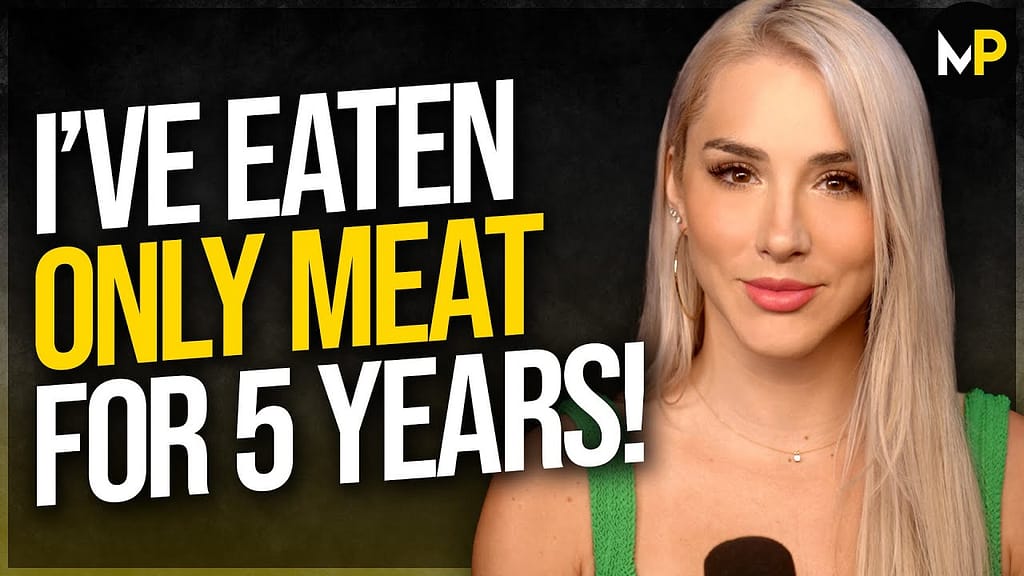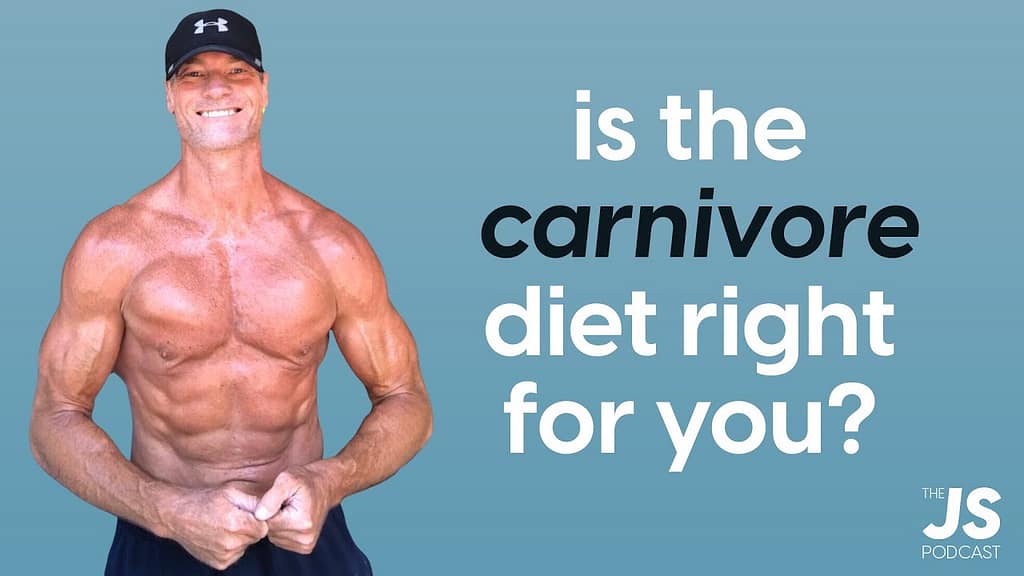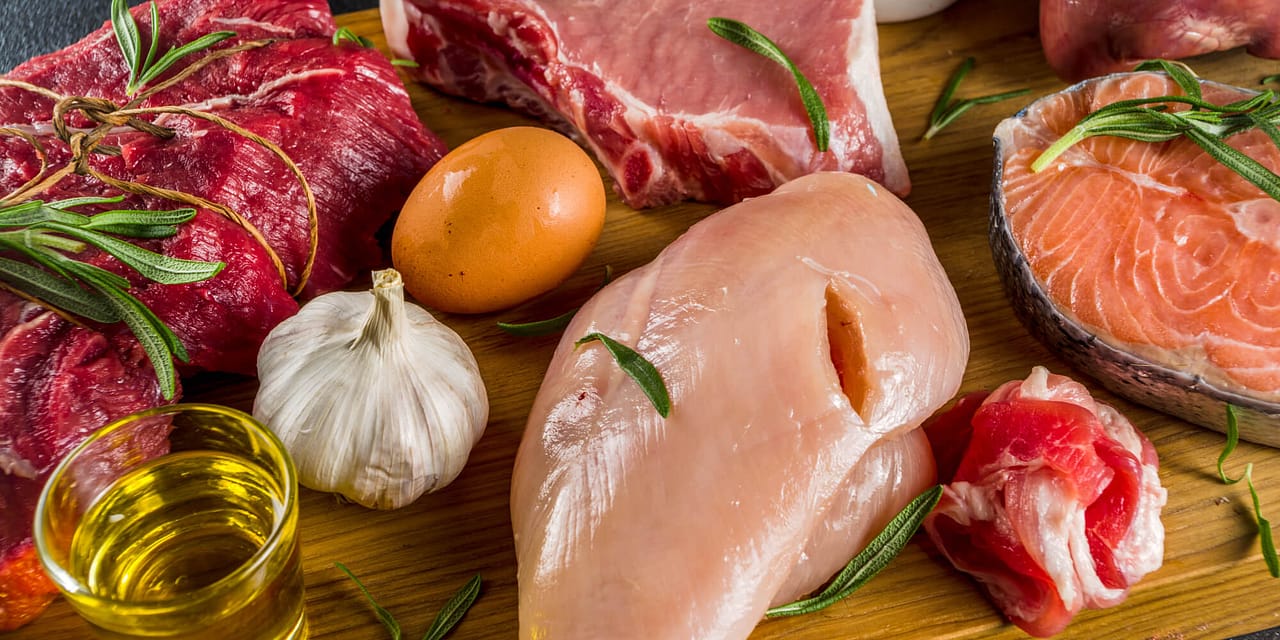Before we start, allow me to comment. If you talk to doctors, their immediate answer is that red meat is bad for you…. Tell that to the woman who has only eaten meat for the last 13 years, and after testing was found to be in perfect health.
I will, in time, fill this post with many examples of successful stories. Here are just two: Jordan Peterson (the famous Canadian) and his daughter, Mikhaila.
Jordan Peterson’s Health Improvements on the Carnivore Die
Jordan Peterson, the Canadian psychologist and author, adopted the carnivore diet in 2018 after struggling with severe health issues, including anxiety, depression, psoriasis, gum disease, sleep disorders, and autoimmune problems exacerbated by medications. He credits the all-meat diet (primarily beef, salt, and water) with dramatic improvements: rapid weight loss (about 50 pounds), elimination of psoriasis and gum issues, better sleep, reduced anxiety, and enhanced mental clarity. Peterson has noted increased energy and resolution of food sensitivities, though he experienced an initial adjustment period with side effects like diarrhea. He continues to follow it intermittently, attributing it to saving his life during a 2020 health crisis involving benzodiazepine withdrawal.


Mikhaila Peterson’s Story and Introducing Carnivore to Her Father
Mikhaila Peterson, Jordan’s daughter, suffered from juvenile idiopathic arthritis starting at age 7, along with severe depression, idiopathic hypersomnia, skin rashes, and joint pain requiring multiple surgeries (including hip and ankle replacements by age 17). After years of medications and failed treatments, she experimented with elimination diets in her teens, discovering sensitivities to most foods. By 2015, she narrowed it to a strict carnivore diet (beef, salt, and water, known as the “Lion Diet”), which she says completely cured her arthritis, eliminated joint pain, resolved depression and hypersomnia, and cleared her skin. Mikhaila has maintained this for over a decade, reporting sustained remission without medications.
In 2018, seeing her father’s deteriorating health (worsened by anxiety meds and autoimmune flares), Mikhaila convinced him to try the diet. Jordan was sceptical but desperate; within months, he experienced similar transformative effects, leading him to publicly endorse it on podcasts and in his book “Beyond Order.” Mikhaila now runs a consulting business and podcast promoting carnivore for chronic illness.
If you believe, like I do, that the body can heal itself. How do you help it start healing? In my opinion, start by what you consume. Try nothing! Yes, give your body a rest. There is nothing wrong with you trying a fast. Or, a fast and a little food. What food has the greatest amount of nutrients? It’s a superfood – red meat. Try it with water with added electrolytes. We will get into fasting in another post.
The Carnivore Diet: Protein Eating
The carnivore diet has gained traction in recent years as a radical approach to nutrition, drawing interest from health enthusiasts, athletes, and those seeking relief from chronic conditions. This eating style eliminates plant-based foods, focusing solely on animal products like meat, fish, eggs, and some dairy. Proponents claim it simplifies eating while delivering profound health benefits, but it’s not without controversy. In this comprehensive guide, we’ll explore what the carnivore diet entails, its potential mechanisms, key figures promoting it, and the reasons behind its limited scientific scrutiny. We’ll also touch on notable adopters and opportunities for those interested in exploring it further.
What Is the Carnivore Diet?
At its core, the carnivore diet is an extreme form of low-carb eating that restricts consumption to animal-derived foods. This means red meat (like beef and lamb), poultry, fish, eggs, and limited dairy such as butter or hard cheeses, while excluding all fruits, vegetables, grains, nuts, seeds, and processed foods. It’s often described as a “zero-carb” or “all-meat” diet, though trace carbs may come from items like organ meats or dairy.
The diet’s simplicity is part of its appeal: no calorie counting or macro tracking required. Followers eat until satiated, prioritising fatty cuts of meat for energy. Variations exist—some include coffee or tea, while strict “lion diet” versions stick to ruminant meats like beef, salt, and water.
This way of eating draws from ancestral diets, mimicking how early humans might have consumed during periods of scarcity. Modern advocates argue it aligns with human physiology, as our digestive systems are adapted to process animal proteins and fats efficiently.
Why Does the Carnivore Diet Work? The Potential Benefits.
Supporters of the carnivore diet point to several mechanisms that explain its reported effectiveness. Primarily, it induces a state of ketosis, where the body burns fat for fuel instead of carbohydrates, similar to a ketogenic diet but with even fewer carbs. This can lead to rapid weight loss, stabilised blood sugar, and reduced inflammation, as eliminating plant foods removes potential irritants like lectins, oxalates, and fibre that some believe contribute to gut issues.
Key benefits include:
Weight Loss and Metabolic Health: By focusing on high-protein, high-fat foods, the diet promotes satiety, reducing overall calorie intake. Studies on low-carb diets (though not specifically carnivore) show improvements in insulin sensitivity, lower triglycerides, and better HDL cholesterol levels. Anecdotal reports from carnivore followers describe losing belly fat and reversing metabolic syndrome.
Improved Digestion and Autoimmune Relief: Eliminating plants may alleviate symptoms of IBS, Crohn’s, or autoimmune conditions by reducing gut inflammation. A 2024 case report on the carnivore-ketogenic diet noted remission in inflammatory bowel disease.
Mental Clarity and Energy: Ketones from fat metabolism provide steady brain fuel, leading to reports of enhanced focus and mood stabilisation. This overlaps with benefits seen in ketogenic diets for neurological issues.
Simplified Nutrition: Animal foods are nutrient-dense, supplying bioavailable vitamins (B12, iron, zinc) often deficient in plant-based diets. Proponents argue this covers all essential needs without supplements.
A pilot study on the gut microbiome of carnivore dieters found adaptations that might support health, though long-term data is limited. Overall, the diet’s efficacy seems tied to eliminating processed carbs and potential allergens, fostering a high-satiety, low-inflammation state.
Dr. Shawn Baker and Revero.com: Pioneering Carnivore Health Solutions
Dr. Shawn Baker, an orthopaedic surgeon and former athlete, is a leading voice in the carnivore movement. After experimenting with the diet himself for over seven years, he founded Revero.com, a platform offering personalised nutrition therapy for chronic diseases like Type 2 diabetes, obesity, and autoimmune conditions. Revero combines carnivore-based protocols with clinical expertise, technology, and virtual coaching to address root causes such as inflammation and insulin resistance.

Baker’s approach emphasises meat-heavy eating to restore metabolic health, with testimonials from users reporting weight loss, reduced medication needs, and improved energy. The site provides ongoing medical support, including clinicians and remote monitoring, making it accessible for those transitioning to carnivore. While not solely a “carnivore company,” Revero’s focus on animal-based nutrition has helped thousands, backed by Baker’s advocacy through books like “The Carnivore Diet” and podcasts. You can buy Shawn’s book here! if you want to take a deeper dive.
Dr. Anthony Chaffee: Guiding the Carnivore Path Through Education

Dr. Anthony Chaffee, a neurosurgical registrar and plant-free advocate, promotes the carnivore diet through his website, howtocarnivore.com, where he offers courses like the “Carnivore Challenge” – a 30-day program to help beginners adopt the diet. Chaffee, who has followed carnivore for over 20 years, argues it’s the optimal human diet, drawing from evolutionary biology and his medical experience.
His courses include over 100 modules on starting carnivore, troubleshooting, and achieving benefits like weight loss and mental clarity. Priced accessibly, they provide meal plans, Q&A sessions, and community support. Chaffee’s podcast, “The Plant Free MD,” features interviews reinforcing carnivore’s efficacy for conditions like autoimmune diseases. He emphasises eliminating plant toxins for better health, positioning carnivory as a therapeutic tool.
Why Have There Been Few Studies on the Carnivore Diet?
Despite anecdotal success, rigorous studies on the carnivore diet are scarce. A 2024 nutrient analysis found it could meet most needs but lacked long-term data. One reason is its extreme nature, making RCTs challenging to fund and conduct ethically, participants might drop out, and blinding is impossible.
Critics suggest pharmaceutical influence plays a role: the diet’s potential to reduce reliance on drugs for diabetes, hypertension, and inflammation threatens industry profits. Statins and insulin generate billions annually, and a free, diet-based solution lacks patentability. Influencers like Dr. Ken Berry accuse Big Pharma of suppressing low-carb research, as seen in critiques of industry-funded studies favoring meds over lifestyle changes. A 2024 review noted bias in nutrition epidemiology, often sponsored by food/pharma giants. Small studies, like a 2021 survey of 2,029 carnivores, reported high satisfaction and few adverse effects, but larger trials are needed.
Celebrities Embracing the Carnivore Diet
The carnivore diet has attracted high-profile adopters, amplifying its visibility. Joe Rogan, the podcaster, experimented with it in 2020, reporting weight loss (12 pounds in a month), improved energy, and resolved digestive issues, though he noted diarrhoea initially. He cycled back in 2021, praising its simplicity but warning of adaptation challenges.
Jordan Peterson, the Canadian psychologist, adopted a carnivore in 2018 on his daughter Mikhaila’s advice. He credits it with alleviating severe autoimmune symptoms, anxiety, and depression, and losing 50 pounds. Mikhaila, who pioneered the “Lion Diet” (beef, salt, water), reversed her arthritis and idiopathic hypersomnia, documenting it on her blog and podcast.
Dr. Shawn Baker himself is a “celebrity” in the space, having eaten carnivore for years and promoting it through Revero and his book. Other notables include filmmaker Chris Bell (who documented his trial), bodybuilder Mark Bell, singer James Blunt (for energy), and podcaster Lex Fridman (tried it briefly). These endorsements highlight carnivores’ appeal for mental and physical optimisation, though not all stick long-term.
Potential Risks and Considerations
While benefits abound, the carnivore diet isn’t for everyone. Potential risks include nutrient deficiencies (e.g., vitamin C, fiber), though proponents argue animal foods suffice. Initial side effects like fatigue or constipation (the “adaptation phase”) are common but typically resolve. Critics warn of long-term heart health concerns from high saturated fat, though a 2024 analysis found no increased risks in carnivores.
Consult a doctor before starting, especially with pre-existing conditions. Sustainability varies—some thrive long-term, others use it cyclically.
Getting Started on the Carnivore Diet
To begin, stock up on fatty meats (ribeye, salmon), eggs, and butter. Eat 1-2 pounds of meat daily, salt to taste, and stay hydrated. Track symptoms for 30 days. Resources like Chaffee’s courses or Revero’s app provide guidance.
Conclusion: Is Carnivore Right for You?
The carnivore diet offers a bold, simplified path to health, backed by advocates like Baker and Chaffee. Its benefits in weight loss, digestion, and energy stem from eliminating carbs and plants, though limited studies, possibly due to pharma interests, leave questions. Celebrities like Rogan and the Petersons showcase its potential, but individual results vary. If intrigued, start small and monitor your body. Explore affiliate-linked courses for structured support.
My experience: I am fully convinced of the benefits of the carnivore diet. I became aware around 6 months ago, Christmas 2024. I have dabbled with it. The further I go with it, the more I notice my body when I come off it. There are certain comforts I like from time to time, but as soon as they pass my mouth, I regret it! I bet 95% of us are the same. After one of my many three-day stints with it, I can feel the change start; it’s a good feeling. When you then have a few carbs, as a reward, your body tells you. Yes, even after three days your body reacts to something you have eaten all your life. I will explore this theme on a further post.






